Can an air purifier help with allergies? We put it to the air treatment specialists
When allergies start taking over your life, can you use an air purifier to make things easier?

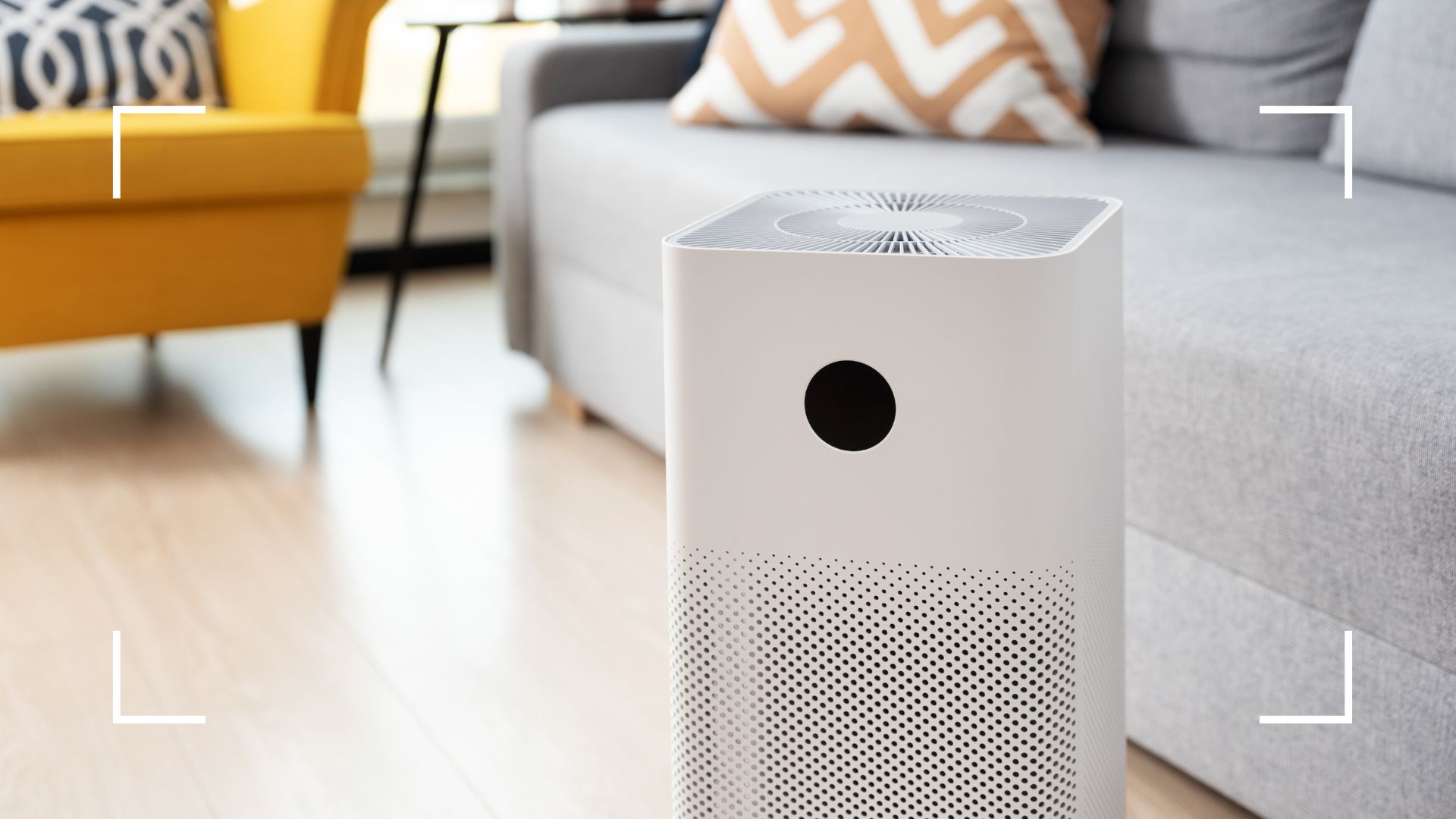
Sign up to our free daily email for the latest royal and entertainment news, interesting opinion, expert advice on styling and beauty trends, and no-nonsense guides to the health and wellness questions you want answered.
You are now subscribed
Your newsletter sign-up was successful
Want to add more newsletters?

Daily (Mon-Sun)
woman&home Daily
Get all the latest beauty, fashion, home, health and wellbeing advice and trends, plus all the latest celebrity news and more.

Monthly
woman&home Royal Report
Get all the latest news from the Palace, including in-depth analysis, the best in royal fashion, and upcoming events from our royal experts.

Monthly
woman&home Book Club
Foster your love of reading with our all-new online book club, filled with editor picks, author insights and much more.

Monthly
woman&home Cosmic Report
Astrologer Kirsty Gallagher explores key astrological transits and themes, meditations, practices and crystals to help navigate the weeks ahead.
If you consistently suffer from allergies, you'll know all too well how annoying and inconvenient the symptoms can be, even when you're sitting at home. We asked experts if an air purifier could be the key to easier breathing and a restful, allergy-free sleep.
From trying to get rid of dust in your home to trying all the anti-allergy sleep hacks, living with allergies can become frustrating. However, with the right help, there are ways you can make your home a safe space from pollen and other irritants.
One of these possible saviours is an air purifier. In the same way you'd use the best dehumidifier to rid your home of damp, purifiers can help with harmful particles in the air. But can this help your allergies? We've asked industry experts to find out for sure.
Can an air purifier help with allergies?
You might be wondering whether or not buying one of the best air purifiers is going to be worth your money. And if you're an allergy sufferer, you may also be asking if it's actually going to make much of a difference. The short answer is yes, it will.
“For most households, an air purifier can be a real game changer for allergy sufferers. These appliances work by pulling in air from the room, passing it through a series of filters, and then circulating the clean air back out," explains Katie Lilywhite, air treatment expert at AO.com.
She continues, "Most notably, an air purifier equipped with a HEPA (High Efficiency Particulate Air) filter is the crème de la crème – trapping up to 99.97% of particles like dust mites, pet dander, mould spores, pollen or even bacteria."
Using one of these models to remove those pollutants can alleviate symptoms for allergy sufferers. Meaning less sneezing, itching, wheezing and irritated watery eyes.
Sign up to our free daily email for the latest royal and entertainment news, interesting opinion, expert advice on styling and beauty trends, and no-nonsense guides to the health and wellness questions you want answered.

Katie is a key expert at Ao.com for a multitude of appliances. She specialises in Floorcare, Health & Beauty, Air Treatment & Garden & DIY.
Will an air purifier help hay fever?
Once spring and summer roll around, it can feel impossible to prevent hay fever symptoms. From the controllable sneezing to itchy eyes, many of us will happily take any help to alleviate symptoms.
“An air purifier is probably the best indoor appliance for managing those pesky hay fever symptoms. Hay fever is triggered by pollen, which can creep into your home through open windows, doors or even by clinging to your clothes or pets," says Katie.
She adds, "A quality air purifier with a HEPA filter can trap airborne pollen before you breathe it in and helps to maintain a clean air environment around your home."
Katie does say that the best way to utilise your air purifier is to run it continuously during peak pollen season. She recommends using it most in the morning and evening when the pollen counts are usually at their highest.
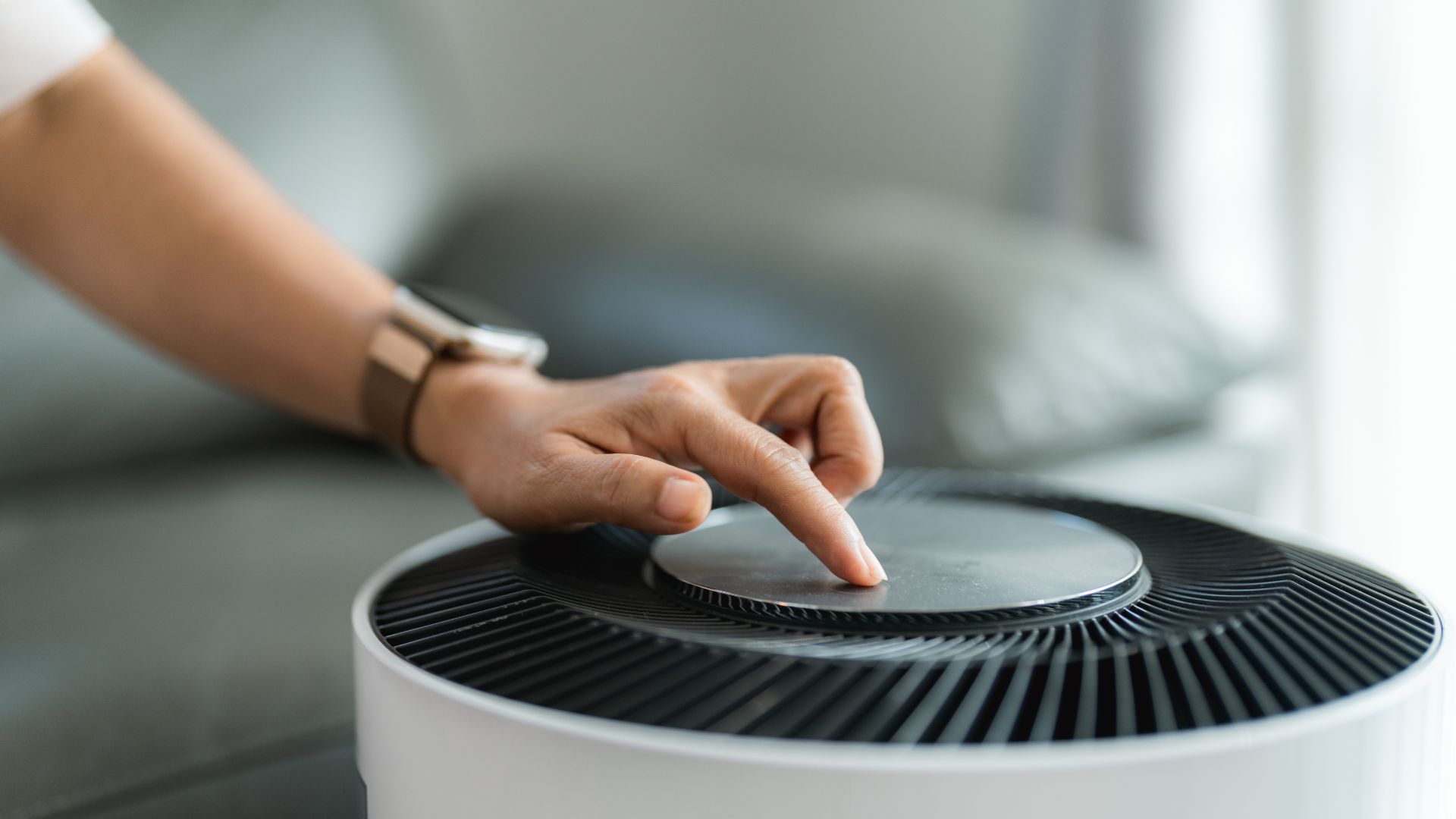
Can an air purifier remove pollen?
In the same way, some houseplants can help improve your home's air quality an air purifier can work to decrease the pollen particles in the air.
“Your air purifier can remove pollen, and this is one of its main strengths," says Katie. "Pollen is an airborne allergen which, quite simply, is easily trapped by high-quality HEPA filters."
"Your air purifier draws in air, captures the pollen, and releases fresh, cleaner air back into the room. Remember to run your appliance in the morning and evenings as these are peak pollen hours," she continues.
You can also help your purifier by vacuuming up pollen hiding on your furniture and flooring. Keeping up with daily cleaning habits will make a huge difference in improving allergy symptoms.
FAQs
Does sleeping with an air purifier help with allergies?
Allergies can sometimes be at their worst when you sleep. It's why many experts recommend buying a dehumidifier for your bedroom as well as adding some houseplants that double up as sleep aids. But can an air purifier be a better solution?
"If you regularly wake up with a runny nose, dry throat or any other allergy-like symptoms, using an air purifier whilst sleeping will help," explains Noel Fok, CEO and co-founder of EcoAir. "It will remove pollutants, dust and other small particles from the air, ensuring that you only breathe in clean air."
Look out for models with quiet modes, that way you won't be kept awake by humming noises or beeping.

Which is better for allergies an air purifier or a humidifier?
With the prices of appliances being somewhat on the higher end, you may be debating which one is best for helping your allergies. But when it comes to air purifiers versus humidifiers, there's no real competition.
“A humidifier may relieve allergy symptoms, but prevention is always better than a cure. Using an air purifier will have a bigger impact as it will remove the allergy-triggering particles from the air before they have a chance to cause symptoms," says Noel.
He adds, "Just make sure to keep windows closed to stop other pollutants getting in and ensure the air purifier is able to work as effectively as possible.”
Shop air purifiers
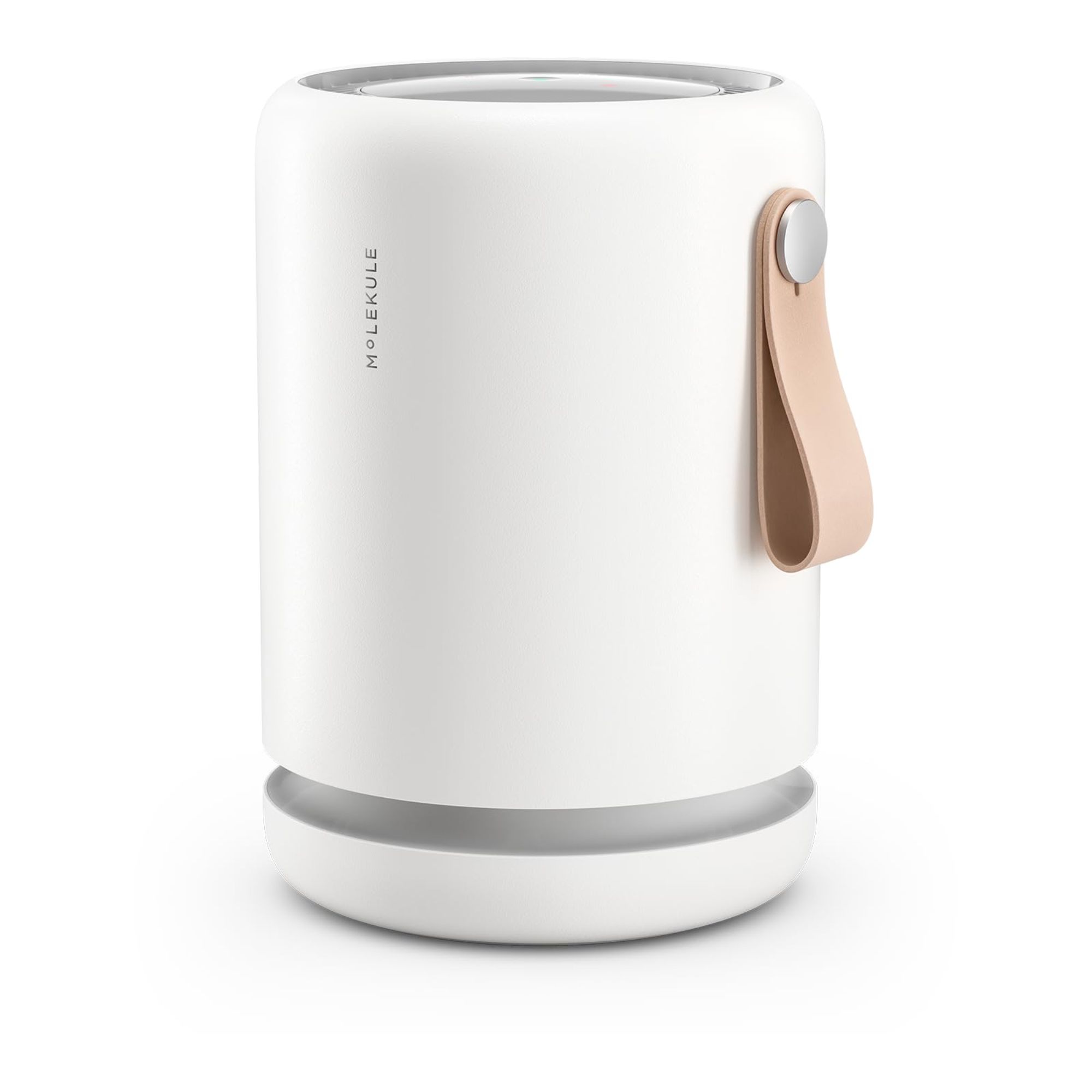
RRP: £299.99 | Rather than trapping dust and allergens, this actively destroys them, and it's one of the only models to do so. The smart app gives you lots of feedback, and it wins big points for style too.
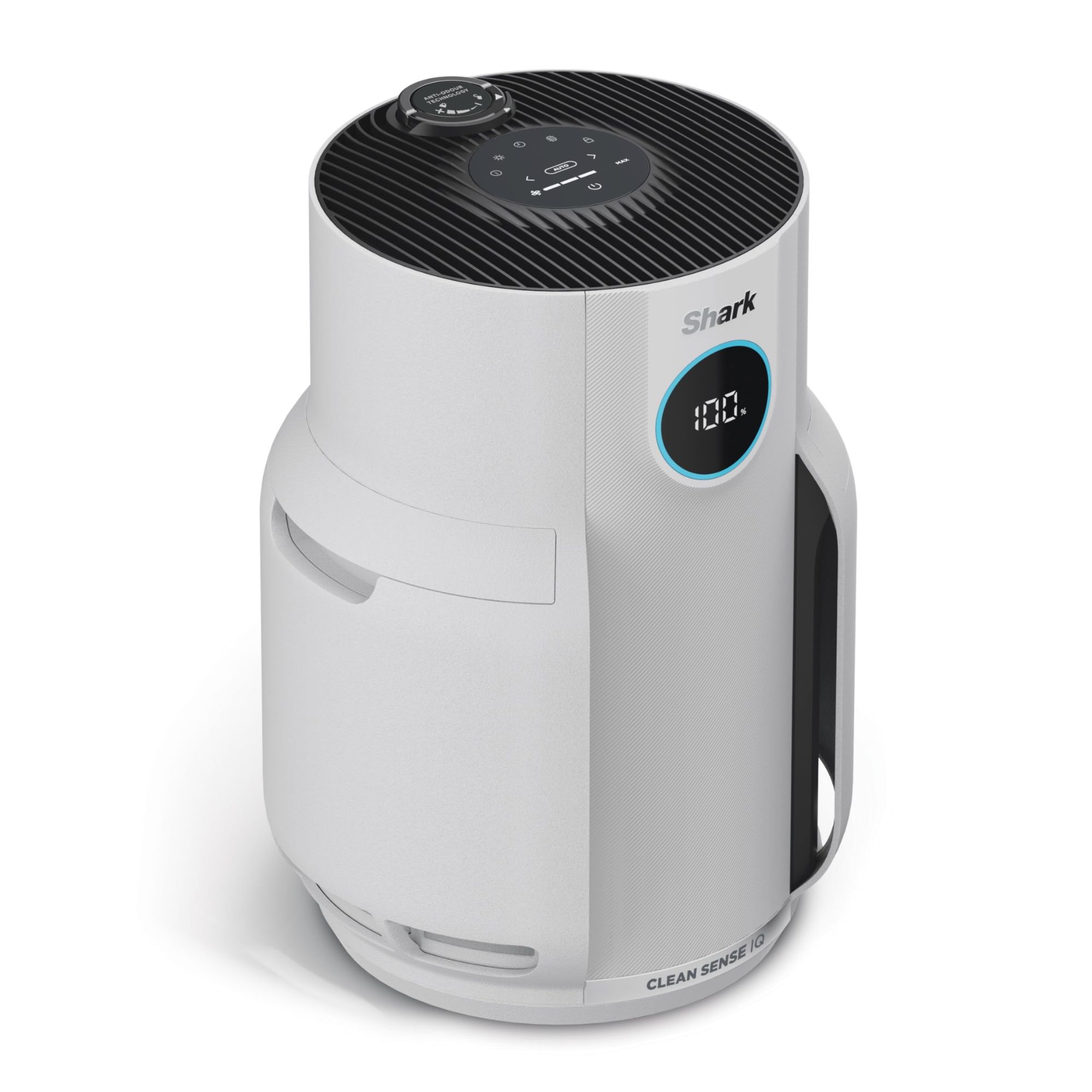
RRP: £249.99 | This all-rounder gives you live updates on your air quality from a simple screen. It's easy to use, great value, and the DirtDefence guards save you money on filters in the long run.
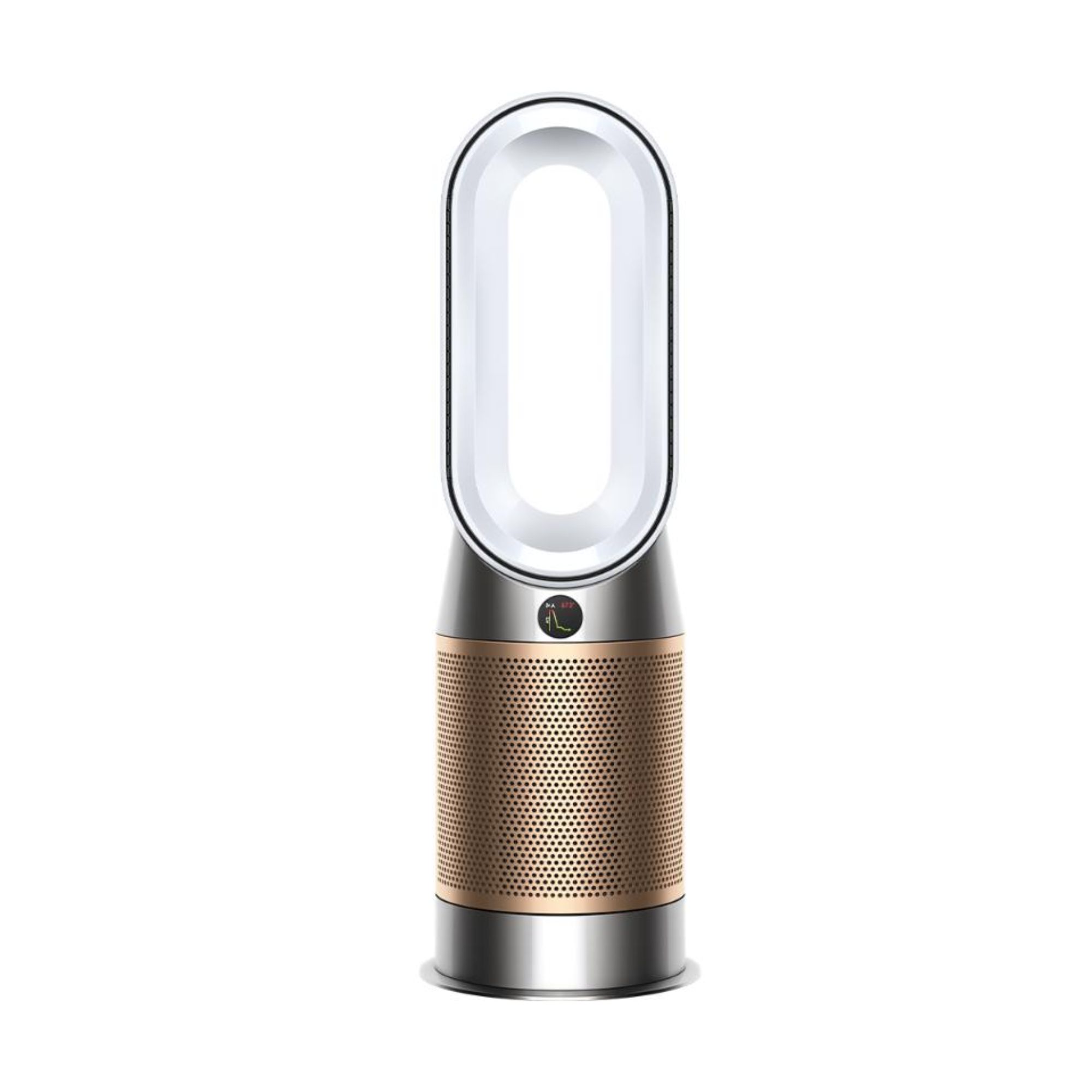
RRP: £549.99 | This is a formidable appliance: it looks beautiful, works as a hot and cold fan, and removes some of the trickiest toxins in the air. It's on the expensive side, but a luxury worth indulging in.
Along with keeping your home dust-free and regularly vacuumed, an air purifier can make a huge difference in removing irritants from the air. This doesn't mean you need to deep clean your home every day, but a weekly run around is highly recommended.

Emily joined woman&home as a staff writer after finishing her MA in Magazine Journalism from City University in 2023. After writing various health and news content, she now specialises in lifestyle, covering unique cleaning hacks, gardening how-tos, and everything to help your houseplants thrive.